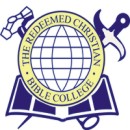2016
Conference: Africa Since Independence
Africa Since Independence: Promise, Pugnacity, and Failure in the Post-Colonial Contexts. An International Conference in Honour of Prof. Akanmu G. Adebayo
3-5 August 2016, Ibadan, Nigeria
Call for Papers
The Global-Africa Development Network welcomes panel, paper, and poster presentations that will contribute to a better understanding of the African experience since independence.
The post-independence period has been one of the most crucial phases of African history. The French writer, Jean-Baptiste Alphonse Karr, once remarked, “plus ça change, plus c’est la même chose” (“the more things change, the more they stay the same”). How much has really changed in Africa since independence? Independence, which some have characterized as mere political independence, was a welcome development and the euphoria this brought had much to do with the promise represented by these new states and their leaders. But less than a decade after independence and several years thereafter, the states, which had held so much promise initially, had dissolved into all manners of crises. Since that period, historians, development experts and policy makers have pored endlessly over the African conundrum. From Senegal to Somalia, and from the Cape to Cairo, it had been stories of horror, terror, and stunted growth. But there were those who have continued to also argue that these were some of the pains of development and that Africa had actually recorded great progress.
This international conference in Honour of Prof. Akanmu G. Adebayo, a foremost scholar of African history and Conflict Studies, whose works have over the years reflected the increasingly important need to understand the African experience in its interlocking dimensions, provides a forum for discussion and networking for leading and younger scholars, researchers, development experts, professionals, policy makers, postgraduate students, and others interested in the past, present and future of Africa.
Themes and subthemes of interest for submission include, but are not limited to:
- Environment: Sustainable Development and Rural Livelihoods; Desertification; Sanitation, Waste Management and Hygiene; Climate Change; Urbanization and Urban Livelihoods; Water Resources and Clean Water Projects; Alien Plants
- Economic Promise and Failure: Africa and the Global Economy; Agriculture and Pastoralism; Minerals and Extractive Industry; Poverty and Affluence; Land Resources Management and Food Security; Private Sector Development; International Finance, Structural Adjustment and Post-Adjustment Issues; Multinational Corporations; Global, International, and Cross-border Trade Networks
- Women and Youths: Women in Politics; Children and Complex Emergencies; Youths in Conflict and Development; Youth Unemployment; Entrepreneurship; Civil Society
- Infrastructure Development: Power and Alternative Energy; Transport and Aviation; Information and Communication Technology (ICT); Health and Wellness; Old and New Infectious Diseases
- Conflict and Security: Natural Resource Conflict; Ethnic and Religious Conflict; Insurgency and Counter-Insurgency; Conflict Resolution; Small Arms and Light Weapons; State and Non-state Actors; the Police and Private Security Organizations; Military, Paramilitary, and Private Military Organizations; Refugees and Internally Displaced Persons (IDPs); Humanitarian Crisis and Action; Crime, Criminality and Punishment
- Regional Cooperation and Integration: From Organisation of African Unity (OAU) to the African Union (AU); Regional Economic Communities; Pan-Africanism
- Political Change: Military Rule and Democratization; Constitutionalism; Elections and Post-Election Disputes; Election Management Bodies; Parliament, Legislature, and the Judiciary
- Foreign Policy and Diplomacy: Intra-African Relations; African countries’ relations with the United States, the European Union, Russia and China
- Culture and Society: Religions; New Religious Movements; the Press; Social Media; Art and Music; Nollywood; Drug and Human Trafficking; the Fashion Industry; Education, Higher Education, and the Future
- Migration and the Diaspora: African Diaspora in Europe and America; African Diaspora in the Middle East and China
- Other Related Themes
Papers presented at the conference will be peer-reviewed, and those assessed to be of high quality will be included in an edited book. Interested persons should send a 250-word abstracts, proposals and other forms of contribution. The deadline for submission of abstracts is Thursday 31st March 2016. You will be notified of the abstracts review panel’s decision by Friday 15th April 2016. If your submission is accepted for the conference, a full draft of your contribution should be submitted by Friday 3rd June 2016. Abstracts should be submitted with the following information and in this order: (a) author(s), (b) affiliation, (c) email address, (d) phone numbers, (e) title of paper or presentation, (f) abstract of maximum 250 words, and (g) up to 5 keywords.
The abstract should be submitted to the Local Organising Committee at: use.history3@gmail.com
Local Organising Committee:
1. Prof. Olutayo C. Adesina, Department of History, University of Ibadan, Nigeria: olutayo27@gmail.com
2. Dr. Monsuru O. Muritala, Department of History, University of Ibadan, Nigeria: murimonsour@gmail.com
3. Joseph Kingsley ADJEI, Department of Sociology, University of Cape Coast
Email: kwadwo2014@yahoo.com
Please note that The Global-Africa Development Network is not in a position to assist with participants’ conference travel or subsistence.
2016
New Executive Committee for the ASRSA
 The Association for the Study of Religion in Southern Africa (ASRSA) has announced a new executive committee. The committee includes the following members:
The Association for the Study of Religion in Southern Africa (ASRSA) has announced a new executive committee. The committee includes the following members:
President: Prof Abdulkader Tayob
Vice President: Prof Farid Esack
Secretary: Dr Maria Frahm-Arp
Treasurer: Ms Beverly Vencatsamy
Journal Editor: Prof Jannie Smit
For more information about each member, see: The New ASRSA Executive
2016
Call for Papers – Globalisation of African Pentecostalism: The Changing face of World Christianity
THE REDEEMED CHRISTIAN BIBLE COLLEGE (RCBC) IN CONJUNCTION WITH THE RELIGIOUS STUDIES DEPARTMENT, UNIVERSITY OF IBADAN ORGANISES
AN
International Conference on African Pentecostalism
Theme:
Globalisation of African Pentecostalism: The Changing face of World Christianity
Venue:
Redeemed Christian Bible College, KM 46 Lagos Ibadan Expressway, Redemption Camp, Mowe, Ogun State, Nigeria.
Conference dates:
Arrival: 19th of July 2016 (from 2pm). Programme commences with the welcome address by 5pm. Conference days: 20th & 21st of July 2016. Departure: 23rd of July 2016.
For more information, see: Conference Information
CALL FOR PAPERS
The twenty-first century has heralded a new dawn in the political map of Christianity with the proliferation of Pentecostalism across the globe. The shift in the centre of gravity of Christianity from the Global North to the Global South is predicated on the dynamic growth of Pentecostalism in Asia, Africa and Latin America. Consequentially, Pentecostalism has been described as the fastest growing Christian tradition in the world. The portable practices and transposable messages of the movement contributes to its appeal to its adherents across various cultural frontiers which often times resonates within the socio-cultural contexts where it is situated.
In the light of the forces of globalisation, migration and technological advancements, African Pentecostalism is no longer geographically delineated. The moral economy of corruption of African leaders, poverty, socio-economic and forced migration have paved the way for many African Pentecostal adherents to travel with their religious idiosyncrasies to various parts of the world. The declining fortunes of Christianity in the West and North America coupled with the fact that religion is consigned to the private space. This provides the missional motivation for the reconversion of former Christian heartlands to the Christian faith by African Pentecostal denominations. In the light of the associated challenges of migration and acculturation in a new cultural frontier, African Pentecostalism provides various opportunities for recreation of Africaness in Diaspora as well as identity negotiation in the host communities.
Attention has been drawn to the social, economic, political dimensions of African Pentecostalism generally. However, the urbanisation of African Pentecostalism across the globe necessitates critical engagement with respect to the changes that has taken place with the redrawing of the Political map of World Christianity. Therefore, the Redeemed Christian Bible College in collaboration with the Religious Studies Department of the University of Ibadan, have jointly organised the 2016 International Conference titled “ Globalisation of African Pentecostalism: The Changing face of World Christianity.”
2016
Call for Papers: ACLARS conference in Addis Ababa
The organizing committee of the African Consortium of Law and Relgion Studies (ACLARS) is pleased to announce the fourth conference on Law and Religion in Africa which will be held in Addis Ababa, Ethiopia, hosted by the University of Addis Ababa and held at the African Union from Sunday, May 22, 2016 to Tuesday, May 24, 2016.
NOTE: Professor Rosalind Hackett has informed us that papers do not need to be law and religion as such, but research on religious groups or practices that has legal or rights implications.
For more information, see: http://www.iclrs.org/content/blurb/files/ACLARS%20Call%20for%20papers%202016.pdf
2015
Five new doctoral studentships: University of Gothenburg
Five new doctoral studentships announced at University of Gothenburg, School of Global Studies. Three assignments in Peace and Development Research, one assignment in Social Anthropology and one assignment in Environmental Social Science.

